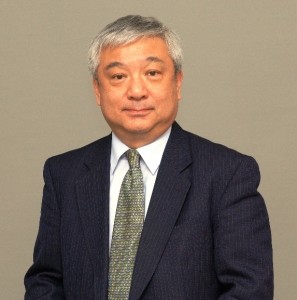Justin’s Japan: NYC Gives B’z an A at Best Buy Theater
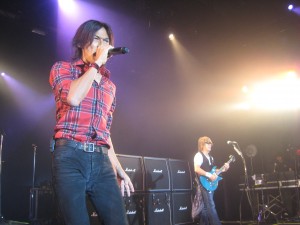
Koshi Inaba, left, and Tak Matsumoto of B’z played a sold out show at New York’s Best Buy Theater Sept. 30, 2012. (Justin Tedaldi)
By JQ magazine editor Justin Tedaldi (CIR Kobe-shi, 2001-02) for Examiner.com. Visit his Japanese culture page here for related stories.
“You’re not going to stand there the whole time, are you?” a thirtysomething asks me in Japanese from behind the photo pit barrier.
I tell her that I wouldn’t be much of a rock photographer if I stood still the whole time.
“Good,” she says, her face all business. “Because we lined up for this from yesterday morning. So please try to keep your head down, because it’s in my way.”
Welcome to the Best Buy Theater in Manhattan, which drew a sold out Sunday crowd of over 2,000 on Sept. 30 for the New York concert debut of B’z, Japan’s all-time biggest band. Since 1988, Tak Matsumoto and Koshi Inaba have sold over 80 million records, and hold an untouchable record for consecutive number one singles in their native land (46 and counting). A colossal achievement in music, to be sure, but how would the rockers be received on this, their first-ever coast to coast North American tour?
For the complete story, click here.
For Justin’s September 2012 interview with Tak and Koshi, click here.
Justin’s Japan: Shinichi Nishimiya, Former Japanese Consul-General in New York, Dies in Tokyo
By JQ magazine editor Justin Tedaldi (CIR Kobe-shi, 2001-02) for Examiner.com. Visit his Japanese culture page here for related stories.
Shinichi Nishimiya, the newly appointed Japanese ambassador to China, died today (Sept. 16) at a Tokyo hospital, government sources said. The incoming envoy previously served as the Consul-General of Japan in New York from March 2009 to the end of 2010, becoming Japan’s deputy foreign minister in charge of economic affairs prior to his new appointment.
Nishimiya, 60, collapsed near his home in Tokyo and was hospitalized on Thursday, only two days after becoming the top envoy to China. The cause of his death has yet to be known. According to Reuters, doctors were looking into the cause of death, but no other details were available. Police have ruled out the possibility of foul play.
Born in 1952, Nishimiya studied at the University of Tokyo and joined the foreign service of Japan in 1976. After working at the Embassies in Washington, D.C., Moscow and London, he served as the director of policy coordination division, Foreign Policy Bureau and as deputy director-general, Asian and Oceanian Affairs Bureau, both in Tokyo. From 2005 to 2006, he served as a as consul at the Japanese embassy in Beijing.
In his new role, Nishimiya would return to Beijing to replace Uichiro Niwa, his predecessor from the private sector, amid deterioration in bilateral ties sparked by Japan’s nationalization of the Senkaku Islands.
For the complete story, click here.
Justin’s Japan: Interview with Tak Matsumoto and Koshi Inaba of B’z on the Live-Gym 2012 Tour
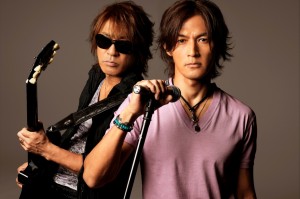
Tak Matsumoto, left: “This tour is going to be the fourth tour in the U.S. for B’z. I always love to play in the U.S., and I felt we should release English songs for the American audiences. The show will be a mix of both Japanese and English.” (Vermillion)
By JQ magazine editor Justin Tedaldi (CIR Kobe-shi, 2001-02) for Examiner.com. Visit his Japanese culture page here for related stories.
The most successful group in Japanese history, B’z have sold 80 million records since their 1988 debut, and also have released a staggering 46 consecutive number one singles. Comprised of Grammy-winning guitarist Tak Matsumoto and ace vocalist Koshi Inaba, the rock duo has flirted with American success in the past, launching three of their Live-Gym West Coast tours in the last decade.
Now, B’z is ready for a full-scale American invasion, launching their first-ever national tour beginning in San Francisco Sept. 17 and hitting New York’s Best Buy Theater Sept. 30. At the same time, the band is promoting its debut English-language digital EP entitled B’z, which features five of the stadium act’s biggest hits made for a whole new audience.
In this exclusive interview, I caught up with Tak and Koshi on why the band waited until now to do a coast-to-coast tour, their experience working with other rock luminaries like Aerosmith and Linkin Park, and the plans in motion for the band’s 25th anniversary next year.
Let’s start with the basics. How did the band get its name?
Tak: I don’t remember exactly. We probably thought we needed to have a simple name that was easy to memorize.
Koshi: We wanted a short name—like a code. At first, it was AZ, which came from an A to Z kind of meaning, but we didn’t like how it was pronounced. Then we changed it to B to Z, and liked how it sounded.
Why has B’z decided to finally play New York now?
Tak: I don’t know exactly why it took so long, but I’ve been waiting to perform there. I’m really looking forward to it.
Koshi: When we started performing in the U.S., most of our dates were on the West Coast. We weren’t familiar enough with New York to have a show there.
Tell us about the other musicians you’re performing with on this tour.
Tak: Takanobu Masuda is on keyboards. He’s my old friend, and has been performing with B’z for 20 years. Shane Gaalaas is on drums. He’s played with Michael Schenker, Yngwie Malmsteen and many others. He also has his own band, Cosmosquad. Barry Sparks is on bass. He also played with Michael and Yngwie, along with Ted Nugent, UFO and the Scorpions as well. Yoshinobu Ohga is on guitar. He was on our last tour of the U.S. I’m supported by his perfect harmony.
Koshi: Ohga joined last year. Everyone else has been touring with B’z for a long time, and they’re all great.
What can we look forward to at these shows?
Tak: We are going to the East Coast for the first time, but this tour is going to be the fourth tour in the U.S. for B’z. I always love to play in the U.S., and I felt we should release English songs for the American audiences. The show will be a mix of both Japanese and English.
Koshi: We’re looking forward to the U.S. audience hearing our new English songs. You might sweat a lot at our show, but you’ll enjoy it!
Is this new EP part of a plan to release a full English-language album in the future?
Tak: I hope so.
For the complete interview, click here.
Justin’s Japan: Nippon in New York — B’z, Books, Sake Tastings and Michael Jackson in Yokohama

B’z, the biggest-selling musicians in Japanese history, will make their New York debut at Best Buy Theater Sept. 30. (Courtesy of Best Buy Theater)
By JQ magazine editor Justin Tedaldi (CIR Kobe-shi, 2001-02) for Examiner.com. Visit his Japanese culture page here for related stories.
After you’ve rested up from Labor Day weekend, enjoy the sights, sounds and tastes of Japan with a whole month’s worth of events, activities and products from musicians to authors to restaurants. It’s all happening here as we welcome another autumn in New York.
Tuesday, Sept. 4, 6:00 p.m.-8:00 p.m.
Oze no Yukidoke from Ryujin Shuzo Sake tasting
Sakaya
324 East 9th Street
Hailing from Gunma prefecture, Oze-no-Yukidoke is a well-refined sake that is widely considered to be one of the finest sakes available. Join Mr. Hideki Horikoshi, the head sake brewer of Ryujin Shuzo, for his his handmade signature sake, Oze no Yukidoke Junmai Daiginjo, as well as Ohkarakuchi Junmai. Purchasers will receive a lacquered sake cup as a free gift!
Sunday, Sept. 9, 1:00 p.m.
Cultural Resource – Contemporay Music by Japanese Composers/Musicians
Scandinavia House
58 Park Avenue
“The influences of ethnicity on the musical idioms of contemporary composers” is the research subject of Akiko Asai, Visiting Scholar at New York University. This concert is held as a part of her research project and a wrap-up of her research term at NYU and features Japanese composers and their works. The audience will be able to not only meet these artists’ creativities but also listen to the result of their research through the identical sound of accordion. Tomomi Ota, who will play their pieces, is a one of the promising performers who can show the audience different perspectives vividly.
For the complete story, click here.
Justin’s Japan: Interview with ‘Speed Tribes’ Author/JET Alum Karl Taro Greenfeld
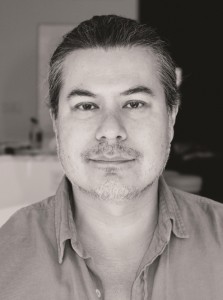
“From being born in Kobe and spending time in Japan as a child, I had a decent feel for Japanese culture and even a little bit of the language. But what best prepared me for the JET Program was living in Paris during my junior year in college; that familiarized me with living in a foreign country and how one had to adapt, especially back then in pre-Internet times.” (Esmee Greenfeld)
By JQ magazine editor Justin Tedaldi (CIR Kobe-shi, 2001-02) for Examiner.com. Visit his Japanese culture page here for related stories.
Born in Kobe and raised in America, Karl Taro Greenfeld (Kanagawa-ken, 1988-89) is the author of six books, and over the past two decades his writing has graced everything from the Paris Review to Playboy to Time Asia (where he served as editor for two years). His first book was Speed Tribes: Days and Nights with Japan’s Next Generation, a gritty, true-life portrait of Tokyo’s urban underground. Published in 1994, it exposed a fascinating side of post-bubble Japan rarely seen (or reported by) foreigners.
Now living in Tribeca with his wife and two daughters, Greenfeld has recently penned his debut novel, Triburbia, which once again finds a muse in his current milieu. The New York Times calls it “an artful and casually cohesive work of fiction imbued with anthropological insight,” and Greenfeld will be appearing at an author event at (where else?) Barnes & Noble Tribeca on Sept. 5.
In this exclusive interview, I spoke with Greenfeld about his early days in Japan during its economic peak, his highlights as a journalist covering the nation’s subculture, and a never-before-told story about the fate of a planned Japanese-language release of Speed Tribes.
Triburbia is a story about Tribeca fathers at the end of the last decade facing a changing neighborhood, which is similar to your own life. What made you to decide to write a novel about this?
I was living in Tribeca and then we moved to Pacific Palisades, California for a few years, and that caused me to look back at Tribeca and think about that time and place. It’s very similar to how I wrote Speed Tribes after moving from Japan back to the U.S. Somehow, when I am living in a place the intensity of experience makes it hard to write about. But with the perspective of distance, ideas come into focus and I can get a better idea of what I want to say about a place.
At 23, you served on the JET Program in Kanagawa Prefecture from 1988-89. How did JET come on your radar, and what kinds of jobs did you have before that?
I don’t remember how I heard about JET. I think it was something my mother found out about and passed on to me through her contacts at the Japanese Consulate in Los Angeles. Before that I was working in a clothing store and was just starting to write for magazines. I’d had small stories in the New York Times and Harper’s Bazaar and I already knew that’s what I wanted to do. But then I was accepted into the JET Program, which turned out to be a lucky break because it got me to Japan, though further from Tokyo than I would have liked.
You were born in Kobe, grew up in Los Angeles and went to college in New York. How did this exposure to different cultures and lifestyles prepare you for your time on JET?
From being born in Kobe and spending time in Japan as a child, I had a decent feel for Japanese culture and even a little bit of the language. But what best prepared me for the JET Program was living in Paris during my junior year in college; that familiarized me with living in a foreign country and how one had to adapt, especially back then in pre-Internet times. I remember getting theJapan Times every day and that was my only connection to what was going on in America, a few baseball results—they didn’t print box scores—and maybe a few AP stories picked up about Bush or Dukakis. That was it!
How about being perceived as “half-Japanese” or “Asian” during your time in Kanagawa?
I think being half-Japanese was actually a disadvantage in the JET Program. For one thing, when Japanese kids hear they are getting a foreign teacher, they want a foreign teacher: A tall, strapping, blonde, preferably female, would be ideal. When I showed up, looking Japanese, I think it was a little bit of a disappointment. Never mind how lousy a teacher I actually was.
What were the biggest life lessons you picked up from JET? How about from that first year from working in Japan?
I learned a few things: For one, I learned that I shouldn’t confuse loneliness and happiness. That sometimes, I could be very lonely, and for the first six months or so in Kugenuma, where I lived in Kanagawa, I was intensely lonely. But I was strangely productive. I wrote a novel (never published), read a few hundred books, and had a lot of time to think about writing and what I wanted to say. It was the first time in my life that I wrote every day for a year.
For the complete interview, click here.
Justin’s Japan: Interview with Minoru Niihara of Loudness on ‘Eve to Dawn’
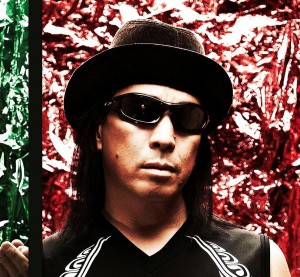
“Compared to the ‘80s, record labels, media and music industry are totally different now, but rock bands’ success has been always written on the stage. I believe that rock bands should live on the stage and that’s the most legitimate way to do our job.” (Courtesy of FrostByte Media)
By JQ magazine editor Justin Tedaldi (CIR Kobe-shi, 2001-02) for Examiner.com. Visit his Japanese culture page here for related stories.
In the beginning, there was Loudness. Formed in 1981 in Osaka, the Japanese quartet started out as a successful hard rock and metal outfit and expanded their fanbase to America four years later with an international album deal and hit single “Crazy Night.”
History is now repeating itself. Twenty-five years after the release of original frontman Minoru Niihara’s last album with the group during their ’80s heyday, Loudness has now inked a new global record deal with FrostByte Media to reintroduce them to a new audience outside of Japan. First up is the newly released studio album Eve to Dawn—their 26th overall—and a fall North American tour is in the works.
In this exclusiveinterview, I caught up Loudness’ charismatic vocalist to discuss opening for Mötley Crüe at Madison Square Garden, the similarities between Japanese and American groupies, and which heavy metal movie makes him cry.
Eve to Dawn was released last year in Japan. Are there any differences between the original version and the American release?
I don’t have a copy here yet, but I don’t think there’s any difference between the two.
Are there any plans for your new label to release your most recent album, 2012, which also just came out inJapan?
It’ll be released next year.
For those unfamiliar with the band, how would you describe Loudness’ sound and lyrical themes?
It’s a very unique hard, heavy and explosive, Asian metal rock band. The most recent album has lots of songs with positive and encouraging messages because of the quake in 2011.
What made you want to become a rock singer?
When I was about 15, there is a cool singer named Masaki Ueda in Osaka, and because I really liked him, I got interested in singing. After a while I found joy in singing when I learned that people loved to listen to me sing. I became a pro, one synchronicity after another.
In a recent interview with New York’s own Chopsticks magazine, the band mentioned that its main goal now is to become a success in the U.S. What plans do you have to achieve this?
There is nothing but touring and doing lots of live performances, I guess. I believe that rock bands should live on the stage and that’s the most legitimate way to do our job. That’s our policy!
For the complete story, click here.
Justin’s Japan: Week Three of JAPAN CUTS 2012 Blasts Off with ‘Space Battleship Yamato’ Premiere
http://www.youtube.com/watch?v=Row0rYFQCHs
By JQ magazine editor Justin Tedaldi (CIR Kobe-shi, 2001-02) for Examiner.com. Visit his Japanese culture page here for related stories.
Japan Society’s annual JAPAN CUTS festival winds down this week with a sensational lineup of cinema and stars. The DON’T STOP! JAPAN CUTS Party follows the July 26 screening of Don’t Stop!, featuring an introduction with director Kenji Kohashi.and Leonie director Hisako Matsui for the July 27 screening introduction and Q&A.
DON’T STOP! documents the journey of “CAP,” a hard-as-nails 46-year-old man who realizes his lifelong dream, to go to America and ride a Harley down Route 66. CAP’s love affair with America and motorcycles began when he was young, but when he was 26, a traffic accident immobilized his left hand and lower body. Over the next 20 years, much of his life has been spent either in bed or in a wheelchair. In a 10-day, 4200 km trip across the U.S., encounters and miracles happen along the way to breathe fresh life into CAP and his friends.
Other highlights include Toshiaki Toyoda’s enigmatic terrorist art house gem Monsters Club (July 25); tthe world premiere of moral shocker Ushijima the Loan Shark (July 25), which features the impressive film debut of AKB48’s Yuko Oshima (recipient of the festival’s first-ever Cut Above Award for Outstanding Debut); Hisako Matsui’s haunting docudrama Leonie (July 27); and climaxes with the North American premiere of one of the highest-grossing Japanese films of all time, Space Battleship Yamato (July 28).
For this week’s list of films, click here.
Justin’s Japan: Week Two of JAPAN CUTS 2012 Spotlights Late Film Legend Yoshio Harada
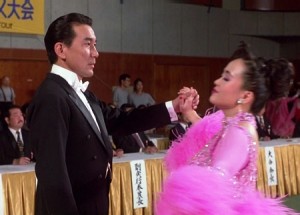
‘Shall We Dance?’ returns to the big screen July 21 as part of this week’s JAPAN CUTS offerings at New York’s Japan Society. (Daiei Co., Ltd )
By JQ magazine editor Justin Tedaldi (CIR Kobe-shi, 2001-02) for Examiner.com. Visit his Japanese culture page here for related stories.
This week, Japan Society’s annual JAPAN CUTS film festival pays tribute to the late actor Yoshio Harada, screening his final film Someday and 9 Souls, (both July 19). The festival also highlights the career of living legend Koji Yakusho, presenting five of his most inconic films over July 20-21: Chronicle of My Mother, Cure, Shall We Dance?, Toad’s Oil (which Yakusho also directed), 13 Assassins, and The Woodsman and the Rain.
Yakusho will be on hand for the Woodsman’s sold-out July 20 screening for an introduction, Q&A and reception. On that occasion, the festival will award the star the first ever JAPAN CUTS prize, the Cut Above Award for Excellence in Film. Yakusho will also appear for the July 21 screening of Takashi Miike’s hit samurai action movie 13 Assassins. Other highlights include Toshi Fujiwara’s provocative and poetic documentary on post-tsunami Japan No Man’s Zone (July 22, includes an introduction and Q&A with director Toshi Fujiwara).
Also, fans can enjoy encore screening of the irresistible blockbuster love comedy Love Strikes! (July 22). The film’s debut on July 17 welcomed a very special guest, Japanese Academy Award-winning actress Masami Nagasawa, who appeared following a live taiko performance by the legendary group Cobu.
For this week’s list of films, click here.
Justin’s Japan: Week One of JAPAN CUTS 2012 Serves Up ‘Love Strikes!’, Adult Anime
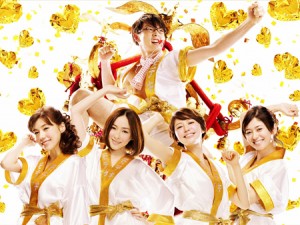
‘Love Strikes!’ has its U.S. premiere at New York’s Japan Society July 14. (© 2011 TOHO CO.,LTD. / TV TOKYO CORPORATION / DENTSU INC. / KODANSHA Ltd. / Sony Music Entertainment (Japan) Inc. / Office Crescendo Inc. / PARCO CO., LTD. / Yahoo Japan Corporation / TV OSAKA CORPORATION / TV AICHI CORPORATION)
By JQ magazine editor Justin Tedaldi (CIR Kobe-shi, 2001-02) for Examiner.com. Visit his Japanese culture page here for related stories.
From July 12-28, Japan Society ushers in its sixth consecutive year of JAPAN CUTS: The New York Festival of Contemporary Japanese Cinema. Bigger than ever, JAPAN CUTS 2012 boasts the most feature films in the festival’s history: 37 full-length and 2 shorts, encompassing blockbusters, high-concept art house titles, mature anime, audacious documentaries, delirious rom-coms and a splatter of J-horror/gore genre busters. Running alongside the New York Asian Film Festival (June 29-July 15), which co-presents 12 films from July 12-15, JAPAN CUTS 2012’s selections sport the unyielding artistry and out-of-control eccentricity that define modern Japanese cinema.
“This year’s expanded and expansive edition of JAPAN CUTS reflects our (slightly maniacal) ambition to be the ultimate platform for Japanese cinema in North America—in the world perhaps?” says Japan Society’s chief film programmer and festival curator Samuel Jamier. “In this respect, the explosive, purposefully off-balance mix of dark-themed hard-core actioners, blockbusters, hit comedies, nano-budget indie titles and philosophical art house pieces emphasizes the wild diversity of the production in the archipelago, as well as its incredible resilience, despite the rise of its East Asian neighbors and the current severe economic conditions. We might not be solving the epistemological conundrum that is Japanese and world cinema (or event zombie apocalypse), but we’re giving it a good try.”
Upcoming events include the sold out Striking Love! JAPAN CUTS Opening Party following the July 14 screening of Love Strikes!, with an introduction and Q&A with star actress Masami Nagasawa (this year’s recipient of NYAFF’s Rising Star Asia Award) and an introduction and Q&A with Monsters Club director Toshiaki Toyoda for the July 15 screening.
For this week’s list of films, click here.
Justin’s Japan: Interview with Jason Michael Paul on The Legend of Zelda: Symphony of the Goddesses

“My company produced and promoted the 25th Anniversary concerts. It was truly an honor to do this for Nintendo. We worked very closely with series composer Koji Kondo and his team to create the best of Zelda.” (Courtesy of Fresh PR)
By JQ magazine editor Justin Tedaldi (CIR Kobe-shi, 2001-02) for Examiner.com. Visit his Japanese culture page here for related stories.
Big in Japan for decades, symphonic concerts of that country’s most popular (and hummable) classic video game tunes have now hit critical mass in America. It’s a dream come true for fans of the blockbuster Nintendo series The Legend of Zelda, as Jason Michael Paul Productions presents the first-ever North American tour of its kind called The Legend of Zelda: Symphony of the Goddesses.
With a high profile performance in Los Angeles last month hosted by Zelda Williams (the star of last year’s Nintendo DS commercials with papa Robin, who named her after the series’ eponymous princess), Symphony of the Goddesses is playing to packed houses and has dates lined up all through November. Next up are a pair of gigs at Jones Hall for the Performing Arts in Houston July 6-7.
In this exclusive interview, I caught up with JMP CEO and the show’s executive producer Jason Michael Paul to discuss his pioneering history of bringing video game concerts to America, the special surprises planned for the tour, and his rebuttal to Roger Ebert’s notorious opinion on the artistic merit of video games.
Tell us a little about how this concert tour came to be. How did you get Nintendo’s blessing?
I have been producing VGM concerts since 2004 when I created Dear Friends: Music from FINAL FANTASY. Since then I have produced successful concerts including “PLAY! A Video Game Symphony.” Given my track record and working history with Nintendo, it was natural for my company to participate in the 25th Anniversary of The Legend of Zelda with symphony concerts in Tokyo, Los Angeles, and London. My company also produced the orchestral CD that was included in the bundle with [the 2011 Wii game] Skyward Sword. The success of the opening of the Nintendo 2011 press event, the 25th Anniversary Concerts, and the recording paved the way for the license to produce The Legend of Zelda: Symphony of the Goddesses.
How did The Legend of Zelda game series first appear on your radar?
In 1987, when my parents purchased it for me to play on my NES.
What’s your favorite Zelda game and why? How would you define the series’ appeal?
My favorite Zelda game is the latest release because I feel as if I contributed to the tile. I was honored to produce the orchestral CD that accompanied the release of the game. The series has appeal through excellent gameplay and music. Throughout its 25-year history Zelda has consistently featured a solid mixture of action, puzzles, battle, adventure gameplay, exploration, and questing.
For the complete story, click here.
Justin’s Japan: Interview with Sake Evangelist/JET Alum John Gauntner
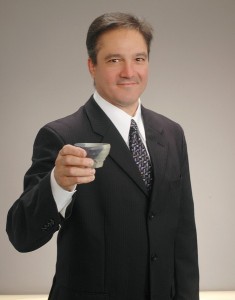
“It was not one big thing but rather a million coincidences that led me to apply for the JET Program. I never, ever imagined I would stay here very long, much less 24 years (and counting)!” (Courtesy of John Gauntner)
By JQ magazine editor Justin Tedaldi (CIR Kobe-shi, 2001-02) for Examiner.com. Visit his Japanese culture page here for related stories.
Known as the Sake Guy or the Sake Evangelist, John Gauntner (Kanagawa-ken, 1988-89) is the world’s leading non-Japanese authority on the nation’s signature beverage, penning numerous books on the subject and touring the world with his popular seminars and speaking engagements.
An Ohio native who currently resides in Kamakura, Gauntner returns to America next week to anchor Rice & Water: The Building Blocks of Premium Sake, this year’s annual sake lecture and tasting at New York’s Japan Society on June 19. The Evangelist will introduce the importance of rice and water in sake brewing, and a special sake tasting reception with more than 30 kinds of premium sake will follow.
It actually was the result of countless coincidences. I did not plan it, really. I just got interested in sake, and after drinking with a friend that worked at the The Japan Times, he asked me to write a piece for them. That led to a column, which led to a book, which led to another. I got involved in the industry so I could study more and that led to my involvement in export and education. I didn’t really choose this path; it chose me.
What attracted you to Japan originally, and how did you get the opportunity to first go there?
Again, I have to say that it was not one big thing but rather a million coincidences that led me to apply for the JET Program. I never, ever imagined I would stay here very long, much less 24 years (and counting)!
As a participant in the early days of the JET Program, what things about Japan and its people do you feel have changed for the better since then?
I was in Kanagawa and participated in JET for two years, ’88 and ’89. But I have been here the whole time, and the changes have taken place so gradually it is hard for me to see them. Certainly, though, a familiarity with people from other countries has changed—for the better!
For the complete story, click here.
Justin’s Japan: Hideo Kojima and Yoji Shinkawa Salute 25 Years of Metal Gear at Uniqlo NYC
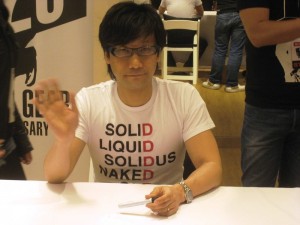
Hideo Kojima, director of the Metal Gear video game series, at Uniqlo 34th Street store in Manhattan, June 9, 2012. (Justin Tedaldi)
By JQ magazine editor Justin Tedaldi (CIR Kobe-shi, 2001-02) for Examiner.com. Visit his Japanese culture page here for related stories.
Japanese retail clothing giant Uniqlo is commemorating a quarter century of Metal Gear—the classic Konami stealth video game series—with a new line of 10 exclusive UT Metal Gear 25th Anniversary T-shirts. On June 8 and 9, series director and game designer Hideo Kojima and artist Yoji Shinkawa made a special appearance at two off Uniqlo’s New York stores with for a special autograph session to commemorate a quarter century of Solid Snake, Big Boss and the eponymous bipedal tank that started it all.
“There were over 2,000 people who attended the UNIQLO Metal Gear event at both Fifth Avenue and 34th Street,” according to Mary Lawton, a spokesperson for Uniqlo. “This is our second event with Metal Gear and we are always thrilled at the level of support we receive from the Konami team as well as the loyal fans of Metal Gear.”
Kojima has made previous appearances at Uniqlo New York’s Soho flagship store in 2008 and 2010.
Fans attending the event who made a $30 store purchase were allowed to have one game-related item signed by Kojima and Shinkawa. Most of the items were related to the Metal Gear Solid series, which began in 1998 on the Sony PlayStation console. (The original Metal Gear was released in the U.S. a decade earlier for the Nintendo Entertainment System.) Most of the fans in attendance were American, attributing to the international influence and success of the Japanese-created game series.
For the complete story, click here.
Justin’s Japan: New York Mets Present Third Annual Japanese Heritage Night
By JQ magazine editor Justin Tedaldi (CIR Kobe-shi, 2001-02) for Examiner.com. Visit his Japanese culture page here for related stories.
After two successful runs, the New York Mets are prepping the third annual edition of its Japanese Heritage Night at Citi Field, featuring pre-game entertainment that celebrates both the traditional performing arts and the enduring spirit of the Land of the Rising Sun a year after the devastation of the Great East Japan Earthquake.
The festivities kick off the evening of Friday, June 15 when the Mets play the Cincinnati Reds. Appearing in the pre-game show this year are the New York Suwa Taiko Association (also known as Taiko Masala) and the Japanese Folk Dance Institute of New York. Following the entertainment, patrons will be treated to the presentation of Mets Community Spirit Awards to New York City Japanese organizations that have been instrumental to the ongoing relief efforts.
The only taiko group based in Brooklyn, Taiko Masala was founded by Hiro Kurashima. A Lincoln Center Teaching Artist from 2004 to 2005, Kurashima has sought to bring the influences of various types of music into the art of Japanese music while at the same time preserving the rich tradition of taiko. The 10-member troupe, whose drummers hail from all over the world, have played such high profile New York events like last year’s Japan Arts Matsuri, and will make their Citi Field debut on game day.
For the complete story, click here.
This year, The JET Alumni Association of New York will be purchasing a block of tickets in the Promenade Reserved area for $20 each. If they buy 25 tickets, their name will be displayed on the scoreboard! Sign up here to reserve your tickets.
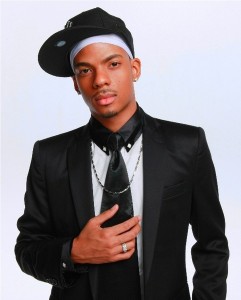
"Every chance I get, I would like to perform. I feel that in order to keep this genre of music alive, the younger generation of Japan needs to be exposed to it more often. I am happy that I am able to keep my current younger fans and gain new ones." (Guan Barl)
By JQ magazine editor Justin Tedaldi (CIR Kobe-shi, 2001-02) for Examiner.com. Visit his Japanese culture page here for related stories.
Since becoming a star in Japan in 2008 for his interpretations of enka, or Japanese ballads, singer Jero is now poised to make his New York debut at Japan Society on June 9 withLet’s Enka! with Jero, where he will perform a selection of karaoke-accompanied enka classics and talk about his childhood, his trailblazing success, the challenges he’s faced and his love for the uniquely Japanese genre of music.
Born Jerome Charles White, Jr., the 30-year-old Pittsburgh native was born of mixed Japanese and African American heritage. He was exposed to enka and the Japanese language as a child by his grandmother, a native of Yokohama. Jero’s first single released in Japan, “Umiyuki” (“Ocean Snow”), entered the top five of the national pop charts, which helped the fledgling vocalist win Best New Artist of 2008 at The 50th Annual Japan Record Awards.
Following his Japan Society debut concert, Jero will participate in a rare meet-and-greet with fans, selling and signing his CDs as well as special Jero tote bags, the proceeds of which will be donated to JERF, the Japan Earthquake Relief Fund, set up by Japan Society in the wake of 3/11. In this exclusive interview, I caught up with Jero on his difficult pre-stardom days in Japan, the turning point that encouraged him to perform in America, and his role as a global envoy of enka.
Your New York debut will be held at Japan Society. How did this come together?
I received an e-mail for the event asking me to perform. I forwarded the e-mail to my manager and there you have it!
Tell us a little about your previous live performances in North America. What were your expectations and how were the shows received?
My very first performance in the U.S. [in 2008] was at my alma mater, the University of Pittsburgh. Two years later, I was given the opportunity to perform in L.A. and San Francisco. I actually was against performing in the U.S. because I wasn’t sure how it would be perceived by the U.S. audience, as all the songs are in Japanese. I received a lot of positive feedback after those performances, which gave me a confidence I never had before.
You’ve said before that you would like to keep performing on the Japanese New Year’s Eve music program Kohaku Uta Gassen every year and continue to get younger audiences listening to enka. How do you feel this has been going so far, and how do you feel about introducing enka to a younger generation of fans?
Every chance I get, I would like to perform. Because the enka audience has decreased every year, outlets to perform have also decreased. I feel that in order to keep this genre of music alive, the younger generation of Japan needs to be exposed to it more often. I am happy that I am able to keep my current younger fans and gain new ones.
For the complete story, click here.
Read an exclusive interview with Jero from the winter 2009 issue of JQ magazine here.
Justin’s Japan: Roland Kelts Makes New ‘Monkey Business’ at Japan Night @ Joe’s Pub
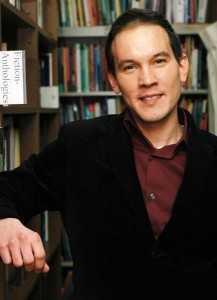
JET alum and ‘Monkey Business’ editor Roland Kelts will appear at Japan Night @ Joe’s Pub in New York May 6. (Kaz)
By JQ magazine editor Justin Tedaldi (CIR Kobe-shi, 2001-02) for Examiner.com. Visit his Japanese culture page here for related stories.
Regular visitors to NoHo’s St. Mark’s Place are known to enjoy many of the Japanese pubs and eateries that dot the street down to Avenue A. This Sunday (May 6), neighbor Joe’s Pub will host live music and the latest English release of a notable Nippon-centric literary anthology.
Japan Night @ Joe’s Pub, held at the eponymous nightclub a stone’s throw below Astor Place, promises an unforgettable night of transcultural readings, music and live performances. On tap for Sunday: revered Japanese writers Masatsugu Ono, Tomoko Shibasaki, and award-winning author and translator Motoyuki Shibata will arrive from Tokyo to share the stage with American authors Stuart Dybek, Kelly Link, and Canadian translator, scholar and editor Ted Goossen.
The scriveners’ summit will celebrate the second Issue of Monkey Business International, the latest English-language edition of the acclaimed Japanese literary magazine that Pulitzer-winning author Junot Díaz calls “one of the year’s best publications” and Luna Park Review dubbed “one of the seven best literary magazines of 2011.”
Emceeing is JET alum (Osaka-shi, 1998-99), Japanamerica author and Monkey Business contributing editor Roland Kelts (click here for an exclusive interview conducted with Kelts last year), who describes the literary project as “all about dear friends calling upon me to be a bridge between the worlds I inhabit, write about and know best—giving me an enormous opportunity to feel a momentary spurt of self-worth.”
For the complete story, click here.

